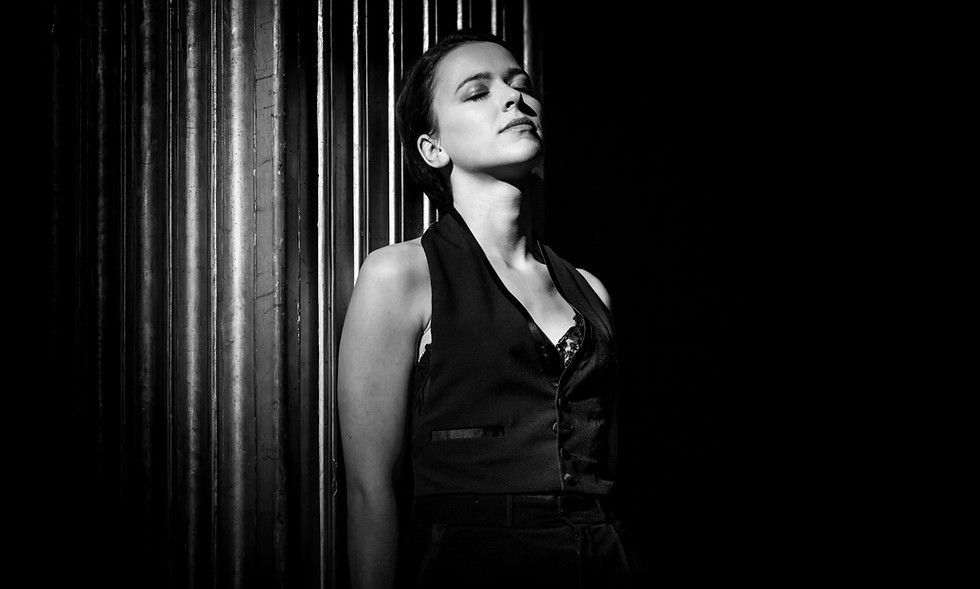Monteverdi's “Il Ritorno d'Ulisse in Patria” from Les Epopées triumphs

Taking its name from ancient poetic sagas, the group Les Epopées (literally, “The Epics”) is a group that celebrates the daring in performance be it in the massive variety of delivery in recitative (Fuget writes a whole essay on this subject in the booklet) or the ornamentation of the score. A rather nice quote from theirFrom their website:
Thus embellished, the music sparkles through interpretation, just as the sun enhances the shimmering of the Hall of Mirrors in Versailles.
We met Les Epopées previously on Classical Explorer in the fourth volume of their series of Lully Grands Motets, also on the Château de Versailles Spectacles label. They are no less spectacular here.
Lavishly presented, Fuget and Les Epopées’ Monteverdi Il ritorno d’Ulisse in Patria is an absolute triumph. Click here for the promo video.
There is much beauty to this performance of Monteverdi’s opera Il ritorno d‘Ulisse in Patria. The opera was considered lost until 1880, at which point a copy was found in Vienna’s National Library, although the libretto had been located a decade earlier. The opera is based on the last songs of the Odyssey (XIII-XXIII). Penelope awaits Ulysses’ return to Ithaca. She thinks he may be dead, but remains faithful. Ulysses arrives, disguised as an old man, and with the help of Minerva, returns to the palace. He wins a ’trial by bow’ organised by Penelope and, triumphant over the other Suitors, he kills them. Eventually he is recognised by his wife who, to quote the booklet,
... after more than three hours of “recitar cantando,” finally begins to sing, in a final love duet.
That final duet is extraordinary, finding Valerio Cantaldo and Lucile Richardot in perfect accord (from “Sospirato mio sole” : My sun that I have sighed for!, to the end).

Monteverdi assigns various modes of utterance to character groups: the deities and allegorical figures sing in recitative; the “noble” characters sing in lamentation (Penelope, Ulisse, Telemaco). Monteverdi gives some ariette to secondary characters (Melanto, Iro and Eurimaco).
The soloists absolutely live this performance: it has every human emotion, surely, and we hear the power of Monteverdi's music - his heart-wrenching dissonances especially. Try the third track fo the first disc, (Act I Scene 2) for the perfect example, where we hear Ambroisine Bré’s Melanto in perfect accord with Pierre-Antoine Chaumien’s Telemaco.
Mezzo-soprano Marilou Jacquard is a formidable Minerva (try act I secne 8, “Cara e lieta gioventù”).

Excerpts are unfortunately few for this recording so far, but here is Juan Sancho as Telemaco (he also sings Giove) in “Lieto cammino, dolce viaggio” at the start ofthe second act:
A complete performance by these performers of Monteverdi's L'Orfeo, incidentally, from Il Prado, Spain, is available here.
Just to note that Ambroisine Bré, who sings Fortuna, Ericlea and Melanto, is performing in London on the evening of this post (Sunday, February 5, 2023) at London’s Wigmore Hall singing Handel with Les Talens Lyriques and Christophe Rousset: the Wigmore website link is here.

A quick heads up, too, that we have four incoming Monteverdi opera DVD/Blurays, two of which are Poppea: a Poppea from the Accademia Bizantina and Ottavio Dantone with Charles Workman as Ulisse and Daphne Galou as Penelope (Dynamic, on CD and DVD/Bluray, in the critical edition by Bernardo Ticci), and the three great Monteverdi operas (Ulisse, L’incoronazione di Poppea and L'Orfeo) from John Eliot Gardiner and the English Baroque Soloists at La Fenice. Gardiner has the same Penelope Ulisse than Fuget, incidentally - the mezzo, Lucile Richardot.
